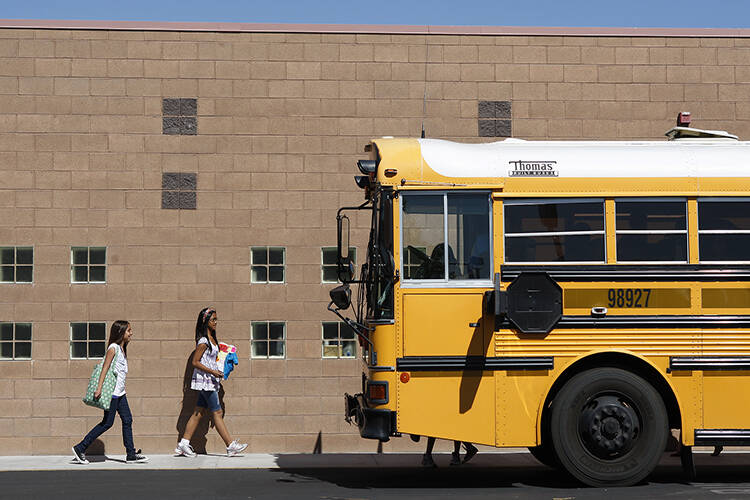COMMENTARY: Public schools, a continuing battlefield
Every action taken by a local school district seems to create an uproar from one group of parents or another. Local school board meetings are filled with parents advocating for their beliefs. It often feels like life or death in these meetings.
Because of their compulsory nature, public schools create political winners and losers. If you live in California, you probably have a left-leaning school system. If you live in Texas, you probably have a right-leaning school system.
The debate about what should or should not be done in a public school isn’t new.
Soon after public school became compulsory, we started debating what should or shouldn’t be taught in schools.
Public schools were originally religious but considered nondenominational. They prayed every morning and read from The King James Version of the Bible, a Protestant translation. This was fine for most of the nation, but if you were Catholic, you probably felt like your values were being challenged.
In response, the Catholic Church created a parallel school system. Because public schools were religious, they reasonably expected to receive state funding.
Sen. James Blaine, a Protestant, disagreed. He introduced an amendment to the Constitution intended to stop the growing popularity of Catholic schools. And he almost succeeded. His amendment was four votes away from passing the House and Senate. It likely would have been ratified by the states.
The religious battle between Protestants and Catholics was the first in a long series of cultural battles. Evolution, Bible reading and prayer all became public school battlefields.
Race is another school battle. In the landmark decision Brown v. Board of Education, the Supreme Court began a series of rulings meant to end segregation in public schools. This decision led to policies such as forced busing, taking Black students from their neighborhoods to schools across town. Many thought this practice was destroying the sense of community in Black neighborhoods.
In the early 2000s, people questioned how well schools were teaching students. This led to the creation of the No Child Left Behind Act, which introduced standardized testing to public schools.
In 2010, Common Core standards became a nationwide movement, forcing districts nationwide to follow the same standards.
Recently, we have seen debates over critical race theory, gender ideology and adult content in library books.
According to the Cato Institute, 2023 was a record year for culture battles in public schools. The most common struggle was over curriculum, with debates over PragerU and AP African-American Studies. Gender ideology and library books were Nos. 2 and 3, respectively.
The problem, whether it’s segregation, busing or gender ideology, is the compulsory nature of schools. We end up with these battles because states force families to send their children to schools where they may disagree with the curriculum.
By implementing open enrollment, families would no longer be limited to the school where they live. This would allow families to choose any public school.
Encouraging charter schools and making it easier to start one would open more options for families. In some states, charter schools aren’t even allowed.
Education spending accounts provide parents with a portion of the state’s education budget. This empowers parents, allowing them to decide how their children will be taught — whether private school, home school or a combination of classes from multiple schools.
Reducing barriers for micro-schools would make it easier for parents and teachers to become education entrepreneurs. This would create opportunities for students with conditions such as autism.
We should eliminate compulsory education, as it creates winners and losers in school decisions. Parents know their children’s needs better than anyone else.
If you want to solve the school culture wars, allow parents to decide who will teach their children and how. No parent should be forced to send their child to a school that teaches values they don’t accept.
Jon England is a policy analyst at the Libertas Institute in Lehi, Utah. He wrote this for InsideSources.com.

















